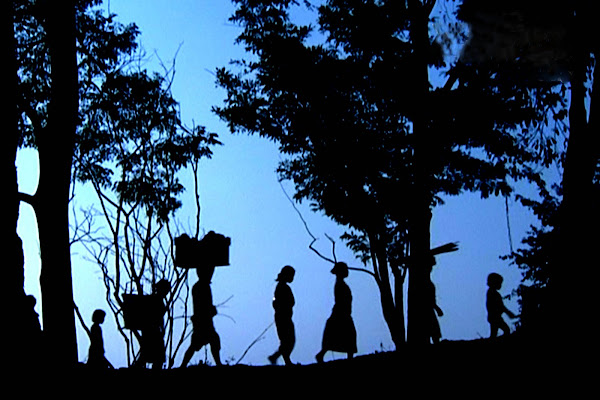CHANDAN SARMAH
FILM FESTIVAL
Meghalaya deputy chief minister Bindo Lanong at the film festival. Picture by Eastern Projections
It was heartening to see nationally acclaimed film directors and artistes attending the three-day film festival in Shilling from as far as Thiruvananthapuram, Mumbai, Bangalore, Chennai, New Delhi and the Northeast.
There were 14 films in the package — an equal number of full-length feature films and documentaries — selected from the Indian Panorama package of the International Film Festival of India held in Goa in November 2008. Of these, there were four films in English, two each in Hindi and Malayalam and one each in Assamese, Manipuri, Marathi, Tamil, Kannada and Kokborok.
The opening films of the festival were Yarwng (Kokborok) and Divided Colours of a Nation (English). While Yarwng is a sensitive story of the plight of the common man in the face of modernisation, the one in English is a 60-minute powerful documentary on the impact of reservation in India.
Produced by the Public Service Broadcasting Trust, the film shows that OBCs, SCs, STs and the less privileged make up 76 per cent of the Indian population but this majority has been ruled by the upper caste which constitutes only 12 per cent.
With authentic, complimentary visuals and sound cinematic language, director Umesh Aggarwal shows how reservation for the backward communities is currently the most contentious issue in the country.
Of the full-length feature films, the Marathi film, Valu (The Wild Bull), directed by Umesh Vinayak Kulkarni, stands out. Valu, the wild bull, is blamed for every single act of chaos and destruction in and around a small village. Gradually, the bull becomes a challenge for the leaders in power and for those interested in fringe benefits. In this complex yet hilarious allegory, Valu represents free will. The director’s finer sense of treatment touches the viewers with its sensitivity and insight.
It may be recalled that the first film society of the Northeast, the Shillong Cine Club, was established in 1962. But it became inactive since the seventies. One only hopes that the initiative of the directorate of film festivals in India works like a major inspiring force to resume the film society movement in this city.
http://www.telegraphindia.com/1090605/jsp/northeast/story_11060439.jsp
Subscribe to:
Post Comments (Atom)

No comments:
Post a Comment